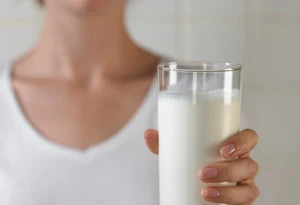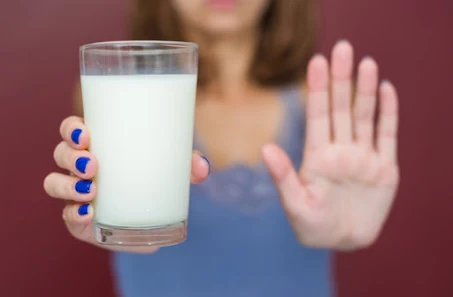MILK: Health Benefits And Risks of Consuming Milk
Sources of milk and milk products include cows, sheep, camels, goats, and many others. Milk alternatives include soy milk, almond milk, flax milk, coconut milk, and hemp milk.
RELATED: How To Make Soya Milk Drink
This article will focus on the benefits and risks of drinking cow’s milk.
Types of milk and milk products
There are many different types of milk, all with varying levels of healthfulness.Milk’s healthfulness depends on the individual and the type of milk they consume.
Pasteurized milk that is high in protein, low in fat, and free from unnecessary additives can be healthful for many people.
On the other hand, some flavored milks contain as much sugar as a can of soda. These are not a healthful choice.
Present day cow’s milk is not a single product. It can be fresh or long life, fat free, lactose free, fortified with added omega-3s, hormone free, organic, or raw, among other options.
Nutrients In Milk
The nutritional breakdown of milk depends on the fat content and whether or not the manufacturer has enriched it. Nowadays, many manufacturers in the United States fortify their milk products with extra vitamins.One 244 gram (g) cup of whole milk with 3.5% to 3.8% fat contains:
- 149 calories
- 7.9 g of fat
- 7.7 g of protein
- 12.3 g of sugars
- 276 milligrams (mg) of calcium
- 205 mg of phosphorus
- 322 mg of potassium
- 3.2 micrograms (mcg) of vitamin D
READ ALSO: Top Foods to Avoid with High Blood Pressure
Meanwhile, one 244 g cup of nonfat or skim milk contains about:
- 83 calories
- 0.2 g of fat
- 8.2 g of protein
- 12.4 g of sugars
- 298 g of calcium
- 246 mg of phosphorus
- 381 mg of potassiu
- 2.9 mcg of vitamin D
Calcium
- developing and maintaining healthy bones and teeth
- helping with blood clotting and wound healing
- maintaining normal blood pressure
- controlling muscle contractions, including the heartbeat
- It may also help reduce the risk of some types of cancer, according to the Office of Dietary Supplements (ODS).
Vitamin D helps the body absorb calcium more effectively. Therefore, pairing calcium-rich foods with a source of vitamin D can increase levels of both nutrients.
The National Institutes of Health (NIH) recommend that people aged 19–50 aim to consume around 1,000 mg of calcium each day, rising to 1,200 mg for women aged 51 and over and men aged 71 and over.
Choline
Choline is an important nutrient that helps with muscle movement, mood, and memory.
Low levels of choline can lead to:
- muscle damage
- liver damage
- nonalcoholic fatty liver disease
The body can make most of the choline it needs, but some must come from dietary sources, such as milk, yogurt, and cottage cheese.
Potassium
Potassium can help reduce the risk of:
- stroke (One Month Before Stroke Your Body Will Send You These Warning Signs)
- heart disease
- high blood pressure
- loss of muscle mass
- loss of bone mineral density
- kidney stones (5 Possible Ways To Treat Kidney Stones)
The American Heart Association (AHA) recommend consuming 4,700 mg of potassium per day. Combining this with a low sodium intake can help prevent high blood pressure.

Vitamin D
Vitamin D is important for the formation, growth, and repair of bones. It also plays a key role in calcium absorption and immune function. In the U.S., most manufacturers fortify milk with vitamin D.
Low vitamin D levels may increase the risk of osteoporosis (brittle bones), osteomalacia, and rickets.
Vitamin D is also associated with boosting the immune system, improving heart health, and protecting against cancer.
The ODS recommend an intake of 15 mcg per day for people aged 1–70 years, rising to 20 mcg per day after the age of 71.
The best source of vitamin D is sun exposure. Very little vitamin D occurs naturally in foods. However, some manufacturers fortify certain foods, such as milk products, with vitamin D. Read more on VITAMIN D HERE.
Health Benefits Of Milk
Milk’s nutrients can benefit the body in various ways. The sections below discuss the specific health benefits of milk in more detail.
Bone health
Milk can be good for the bones because it provides vitamin D and calcium. In fact, it may help prevent osteoporosis. (Natural Remedies For Broken Bones)
Brain health
Some researchers have found that older adults who consume more dairy products have a higher amount of glutathione, a powerful antioxidant, in the brain. (4 Foods to Eat for Better Brain Health: Foods to Boost Your Brain)
Those who consumed three daily servings of milk and milk products had antioxidant levels that were approximately 30% higher than those of adults who had less than half a serving per day.
Blood pressure and heart health
A higher potassium intake and a lower sodium intake are important for reducing the risk of cardiovascular disease, according to the AHA.
In 2014, scientists published their findings after looking at the data of more than 90,000 postmenopausal women. Around 25% of the women who consumed the most potassium had a 21% lower risk of any type of stroke and a 27% lower risk of ischemic stroke.
However, the saturated fat in full fat dairy products can increase the risk of atherosclerosis and heart disease. For this reason, people at risk of stroke or cardiovascular disease should opt for skim or low fat milk. (Foods That Lower Blood Pressure)
Depression
Adequate vitamin D levels support the production of serotonin, a hormone associated with mood, appetite, and sleep.
The findings of a 2019 meta-analysis indicate that vitamin D supplementation may help people with major depression to manage their symptoms. However, the researchers called for more studies to confirm these findings.
READ ALSO: Best Foods For Depression: How Does Fruits And Vegetables Lower Risk Of Depression?
Providing about 8 g per cup, milk is a good source of protein, which is necessary for repairing body tissues and preserving or increasing lean muscle mass.
A diet that includes an adequate amount of protein can enhance wound healing, and it may lead to an increase in muscle mass. It may also promote weight loss, but further studies are needed to confirm this.
People who wish to lose weight should opt for skim or low fat milk, and they should be mindful of their total daily calorie intake if consuming full fat milk.
Risks Of Consuming Milk
Some people choose not to consume dairy products such as milk. These people may:
- choose to follow a specific diet, such as vegan or paleo
- hope to reduce acne or other conditions
- have an allergy or sensitivity to lactose (the milk sugar) or casein (the milk protein)
- have concerns about methods of dairy farming and their impact on the environment
- have concerns about the possibility that milk contains hormones, such as estrogen
Some argue that humans are the only species who continue to drink milk after being weaned, implying that milk consumption is unnatural and unnecessary.
Hormones in milk
Some people worry that the hormones in dairy milk, including estrogen and growth hormones, can adversely affect them.
In a 2016 study, researchers found that mice who consumed high concentrations of estrogen in milk underwent hormonal changes. However, they note that the levels of estrogen were far higher than those that usually occur in cow’s milk.
Scientists have not yet found evidence to suggest that the hormones in dairy milk can affect humans negatively.
Cancer
Some evidence suggests that a high intake of milk may increase the risk of ovarian cancer. The reasons for this remain unclear, however.
People who do not wish to consume milk can choose from a range of dairy alternatives. (Does Acidity Cause Cancer? Consumption of Acidic Foods; The Main Cause Of Cancer)
Allergies, intolerances, and sensitivities
Many people consume milk without experiencing any adverse effects. However, others may have an adverse reaction.
A milk allergy
A milk allergy is different from lactose intolerance. If a person with a milk allergy drinks milk, they will have an abnormal immunologic reaction, in which the body’s immune system produces allergic antibodies such as immunoglobulin E.
For these people, drinking milk can lead to:
- vomiting
- diarrhea
- hives
- blood in the stool
READ MORE:5 Effective Diarrhea Remedies
A severe allergic reaction can trigger sudden anaphylactic shock, which can be fatal. If a person starts to experience swelling or difficulty breathing after coming into contact with or consuming milk, they need urgent medical attention.
Those with a milk allergy should avoid milk and dairy products, including butter, whey, yogurt, and cheese.
Lactose intolerance
Some people do not produce enough of an enzyme called lactase, and this can make it hard for them to digest milk. Lactase breaks down lactose, which is a sugar in milk. Sometimes, this can be a temporary problem — for example, due to an infection.
For those with lactose intolerance, consuming milk can cause bloating, flatulence, or diarrhea.
However, levels of lactose intolerance vary from person to person. Some may be able to tolerate products with low levels of lactose, such as yogurt and hard cheeses, while others may be unable to tolerate even a drop of milk in their coffee.
Lactose free milk has added enzymes to help with lactose digestion. This may ease or eliminate these symptoms.
Casein sensitivity
Casein is a protein in milk. For people with a casein sensitivity, consuming milk can trigger inflammation in the digestive system and throughout the body.
Anyone who suspects that dairy products could be causing symptoms can talk to a dietitian. Trying an elimination diet or undergoing food sensitivity testing may help determine whether or not a dairy free diet is appropriate.
TAKE HOME
Low fat dairy products that do not contain added sugar can be a healthful addition to any diet, as long as the person does not have an allergy or intolerance.
Milk provides protein and a range of vitamins and minerals, including calcium, which is vital for bone health. However, other foods can also provide these nutrients.
Experts recommend that people at risk of cardiovascular disease and those who seek to control their weight avoid consuming full fat milk.
Flavored milks can contain high levels of sugar or artificial sweeteners, binders, coloring, and other ingredients. These are not usually a healthful option.
Anyone who wishes to drink milk but is not sure if it is a good idea can speak to their doctor or a dietitian.
FAQ’S ABOUT MILK
Q:
I would like to give my baby cow’s milk after she is weaned and stops the formula, but I’m worried about the hormones in it. Am I right to worry?
A:
It is best to consume organic, hormone free milk from a reputable source.
Some dairy farmers inject genetically modified hormones called recombinant bovine growth hormone (rBGH) and recombinant bovine somatotropin (rBST) into their cows to increase their production of milk. This can increase insulin-like growth factor-1, which is associated with various cancers.
SOURCE: MEDICAL NEWS TODAY
READ ALSO: What Are the Health Benefits of Cashew Milk?












Nice one doctor 👨⚕️⚕️ keepit shining 💪💪💪
Thank you very much